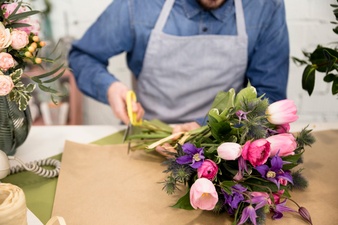These days, every eager best man is excited to organize one last big blowout for his best friend and the groom-to-be. This one last hoorah before he settles down to a life of wedded bliss has been a tradition in the western world for as long as anyone can remember.
The History of Bachelor Parties:
The origins of the bachelor party are about as murky as your head will feel the morning after the night before. But one thing is for sure, the traditional mixture of drinking, bonhomie, and occasional embarrassment have long been the staple ingredients of the groom-to-be’s ‘last night of freedom’.
The earliest incantations of the modern-day bachelor party can be found as far back as the 5th century B.C. The ancient Spartans so loved their brothers in arms, that they would hold a dinner in their friend’s honor, and toast him with fine ale and lengthy speeches.
Sometime during the 14th century, the Father of English Literature and one of the greatest poets of all time, Geoffrey Chaucer, was the first to coin the phrase “Bachelor” whilst referencing unmarried men in the Canterbury Tales. Fast forward further still, and the rambunctious spirit of the 1800s saw gentlemen acting in a not very gentlemanly manner as these nights of “jolly old fun” took on a much more debauched and decadent leaning.
In 1896, for example, a stag party thrown by Herbert Barnum Seeley was raided by police after rumors circulated that a famous belly dancer would be performing nude. The subsequent trial made very public references to the type of goings-on that regularly took place behind closed doors, and shed light on lots of bad behavior that brides throughout the land probably never wanted to know about.
Despite many hundreds of years of boyish enthusiasm, the actual term “bachelor party” didn’t stick until 1922 when the Scottish publication ‘Chambers’s Journal of Literature, Science and Arts’used the term to describe a “jolly old” party. While the name bachelor party is pretty commonplace across the world today, the event is known by different names in different countries. In the UK it is referred to as a “stag party”, a “bucks” party in Australia, and a much more glamorous sounding “enterrement de vie de garçon” in France.
The 1960s with their sexual revolution and spirited freedom, finally saw the ladies getting in on the action too. Brides-to-be now also celebrate saying goodbye to their freedom at bachelorette parties, or hen parties as they are more commonly known in the UK.
Bachelor Parties Today:
The modern-day bachelor party is considered by many as an absolute rite of passage that any young man must simply experience before getting hitched.
Unlike poor old Herbert Seeley, modern-day bachelor parties are unlikely to get shut down for adding the occasional scantily clad lady into the mix. With over 2.2 million weddings in the U.S. each year, there are sure to be lots of bachelor parties as well and many grooms continue to enjoy their last night of freedom in increasingly creative and unique ways.
While it started out as something that was restricted to the boys, recent years have shown how bachelor parties have grown in popularity among women as well. Called Hen Parties, these events are famous for the topless waiters, open bottle champagnes, and a lot of fun and excitement. Many women are now looking to send off their friends towards matrimony in style through these extravagant parties.

For many, this is an opportunity to get away from the regular events of a weekend night out and experience something a bit different, with trips abroad for the occasion becoming increasingly popular. Yes, bachelor parties these days may often involve several days and nights spent away in a completely new city or country.
While the locations and venues may have changed, much of the entertainment remains the same. Drinking games are still commonplace as is the often obligatory trip to a lap dancing club.
Getting the groom dressed up in a fancy dress costume for much of the festivities is a great way to make this occasion one that will last in the memory of those who attended for a long time. There’s an ever-increasing supply of creative, ‘bachelor party themed’ costumes hitting the market, like those shown here on the Last Night of Freedom website.
Bachelor parties are now as diverse as the guests who attend them, with everything from bungee jumping and skydiving to racecar driving and extreme sports featuring heavily during the daytime portion of the event. Gone are the days where it all revolved purely around alcohol and partying. However, there are still staples, such as smoking some of the best tasting cigars. This is something that all guests can enjoy, even if they don’t normally smoke cigars.
As a somewhat controversial alternative to the traditional boys-only celebration, some grooms even arrange to meet up with their bride-to-be for a shared bachelor/bachelorette party that probably offers more wholesome fun and definitely less mucky secrets – although this is not all that commonplace.
So, raise a glass to the brave men who paved the way for boys’ nights out laden with unchecked excess, and let’s toast to the next generation of bachelors who are ready for the ultimate celebration.
Read Alos:























